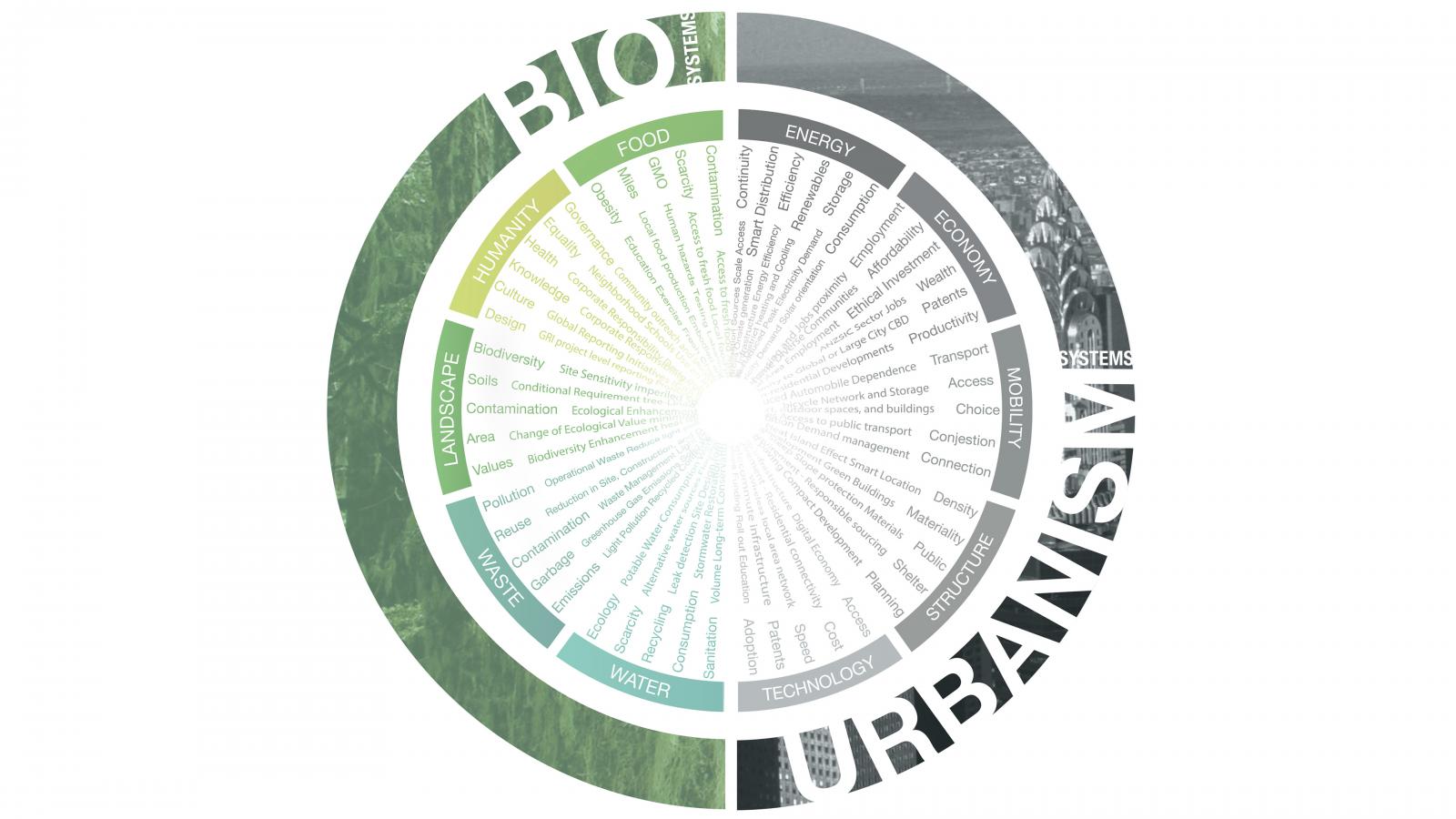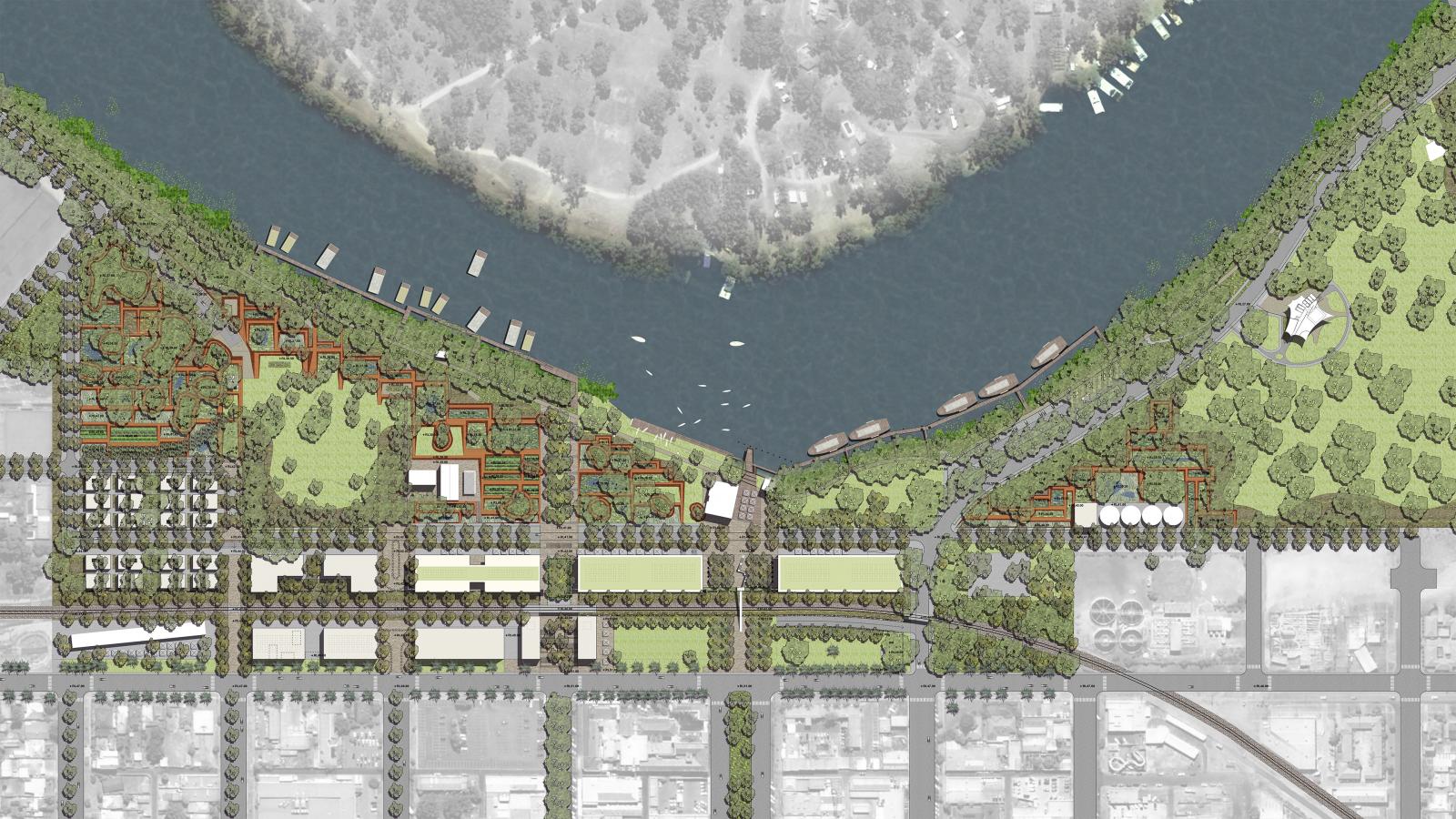Biourbanism is an open source urban planning platform to foster regenerative relationships between cities and the biological systems upon which they depend.
Biourbanism is a systems based platform for building regenerative city policies and urban design strategies. The platform contains a series of indicators grouped under five primary bio and five primary urbanism systems. To achieve urban prosperity the platform maintains that any major metropolitan planning decision should create favourable outcomes across all the ten systems. Decisions that unduly weaken or disrupt any system by favouring another will have a detrimental impact on the overall health and competiveness of the entire city unit.
Prosperous, healthy cities nurture their competiveness through intelligent planning policies that value both natural and economic capital. Biourbanism foregrounds cities as heroes of the environment as some of the most beneficial innovations are being led by city mayors. The most progressive cities have become early adopters of strategies that promote low carbon living through fossil fuel divestment thus enhancing economic competitiveness and climate resilience in the digital age.
In scientific terms biourbanism considers cities to be unique ‘biotopes’ that consist of an interconnected web of biotic and abiotic components managed through human activities. The paradigm adopts an ecosystem agenda that considers the relative equity of the cities ten primary systems to be paramount. A city that achieves a high degree of systems equity is considered to be a Biocity.


